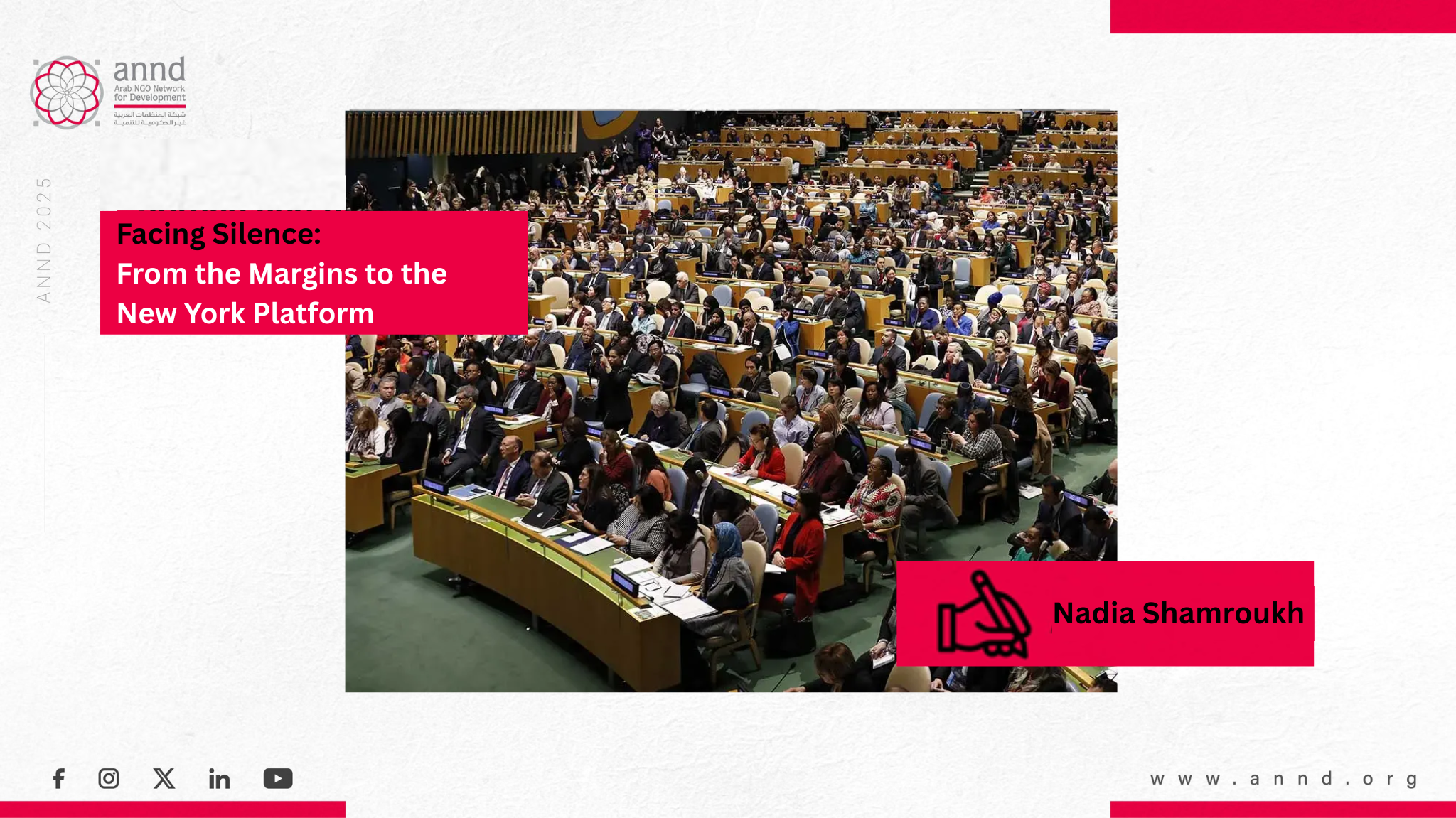Facing Silence: From the Margins to the New York Platform – Nadia Shamroukh
At a time when the international justice system is collapsing before scenes of genocide, and when the credibility of international law is being tested on the ground in Gaza and Sudan, women in the Global South advance a narrative of resistance—one that is neither subdued by colonial structures nor excluded by exhausted international politics.
Over the past two years, Arab societies have witnessed a profound crisis of trust in the international system, manifested in the UN's inability to confront grave violations committed daily, particularly by Israel in Gaza, Palestine, and Lebanon. As conflicts in Sudan escalated, sharp questions emerged regarding the extent to which parties to the conflict adhere to principles of international law and international humanitarian law, amid the perpetration of genocide and ethnic cleansing, without any respect for international protection frameworks, despite continued efforts by Arab and Western organizations to activate accountability mechanisms.
Despite this paralysis, the Palestinian and Arab narrative gained strength, propelled by an unprecedented global popular movement carrying clear demands calling for respect for international law and protection of civilians. South Africa’s case before the International Court of Justice represented a turning point on which human rights defenders pinned hopes to stop the massacres. Yet the absence of enforcement mechanisms and the repeated use of the U.S. veto in the Security Council exposed double standards and dealt severe blows to the credibility of the international system—especially when compared to the speed with which sanctions were imposed on Russia during its war with Ukraine.
In this troubled context, preparations by the United Nations for holding the annual session of the Commission on the Status of Women (CSW) in New York—marking thirty years since the Beijing Conference—appeared detached from the realities experienced by women in conflict zones. The Arab feminist network “Ru’a” prepared an analytical report titled “A Feminist Agenda Transcending Colonial Structures,” presenting the issues of women in the Global South and revealing the economic, political, and social contexts that obstruct their access to justice and equality. The scope of participation expanded to include African feminist organizations, although some participants were denied U.S. entry visas—a stark contradiction between the rhetoric of inclusivity and practices of exclusion.
The report addresses four key themes, and it has become not only part of building our Arab feminist discourse that reflects the issues of Arab women and women in the South, but also a reflection of many organizations that share our vision regardless of nationality or location. The report contains frameworks that signatories can use to build joint strategies that resonate with any fracture that may occur:
The report addressed the CSW conference, held annually in New York and attended by tens of thousands of women, and the superficial, decorative participation of women’s organizations outside the UN framework where decisions and declarations are drafted.
It compared the outcomes of the four UN conferences and examined the global contexts that prevailed during those stages, where the dominance of two world powers allowed for the creation of a reasonable balance. A closer look at those outcomes reveals that what was adopted in Mexico remains a priority in the foundations of the International Women’s Decade Conference that the UN endorsed from 1975 to 1985.
Reviewing the outcomes of the first three world conferences (Mexico, Copenhagen, and Nairobi) reveals a notable presence of contributions by Arab women and women from the Global South in general, leaving a mark reflected in decisions and a largely responsible reading of women’s realities and the differing contexts among countries, particularly between North and South.
The Mexico Conference discussed racism, colonialism, and discrimination, and issued a series of decisions related to international policies and the struggle against racism and colonialism. This opened the door to present the Palestinian cause as a national liberation struggle against colonialism. One of the most important points raised at the conference was the link between poverty, development, and inequality and their connection to economic policies and colonialism.
The Copenhagen Conference came aligned with Mexico, reaffirming the same themes and linking development and poverty issues with women’s liberation. It delved more deeply into development, poverty, education, women’s liberation, and equality, and drew a deeper connection between class and race on one hand, and gender on the other. The conference pointed to the impact of colonialism and wars on women’s lives, as well as migration and its effects—all factors that hinder the achievement of dignity for women.


